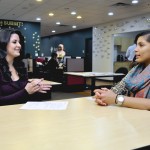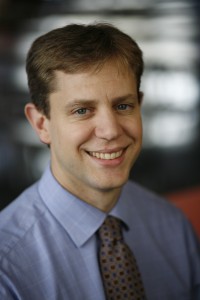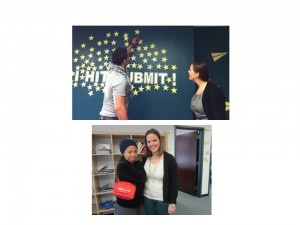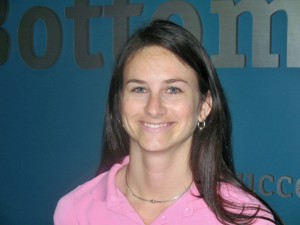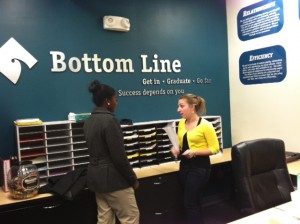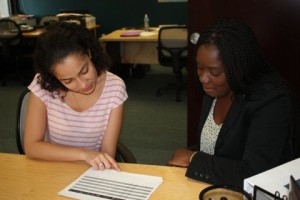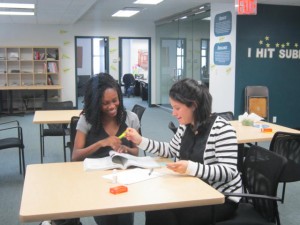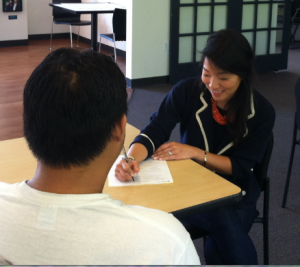On January 10th, we hosted our annual Go Far Forum at the Westin Copley Place Hotel in downtown Boston. The Go Far Forum is a unique career fair hosted for Bottom Line students which provides an opportunity for students to make meaningful connections with professionals and employers in various career fields. This may have been my first Go Far Forum, but I dare say it was bigger and better than ever. We hosted over 320 Bottom Line students and alumni and 100 volunteers.
I watched the students arrive and become wide-eyed as they realized that this was all for them. I welcomed the seniors that I work with and calmed their nerves as they told me what they were nervous about and who they were excited to meet. Each student was dressed professionally and carried with them a prepared and polished resume and a practiced elevator pitch. When I saw these same students at the end of the night, they had been transformed. Beaming with self-confidence, they eagerly told me all about whom they had met and who took their resume at the career fair. This is the type of confidence that makes a difference in a job interview and helps launch a career. This is exactly the confidence I wanted to see. I wasn’t the only one who was impressed by our students.
One employer said, “Bottom Line students know what they want and are proactive and determined.” Another volunteer in the round table discussion room told me that he could see our program at work. “My first table was full of freshman and in the next round my table was full of juniors and seniors. I could see their growth. Your program really works. I could see it.” This feedback was great to hear and affirmed my pride and confidence in the impact that Bottom Line makes.
This year, we welcomed over twenty employers to the career fair, and added three professional organizations. Employers included Boston Children’s Hospital, Draper Laboratory, EMC, Liberty Mutual, State Street, Teach for America, Senator Kerry’s Office, Boston Lawyers Group, and Target, just to name a few. We also welcomed the National Association of Asian American Professionals, the Association of Latino Professionals in Finance and Accounting, and The Partnership, Inc. Bottom Line has created amazing partnerships and many of our students receive internship and job opportunities from this event.
Each student participated in round table discussions where they received feedback on their resumes from senior human resources professionals and a mock interview with seasoned professionals in multiple fields. Each career field was also represented in a special “Career Conversations” lounge, where students could explore their interests and talk to professionals in each field to learn how they got started and receive advice about how they can follow their path.
The Go Far Forum is an opportunity for our students to realize their potential and to start believing in themselves. The opportunity to receive feedback on mock interviews and resumes from professionals in the field is invaluable. Students who attended the event gained confidence, connections, and a more definite career plan.
– Sheryl Rosenberg, Career Counselor
